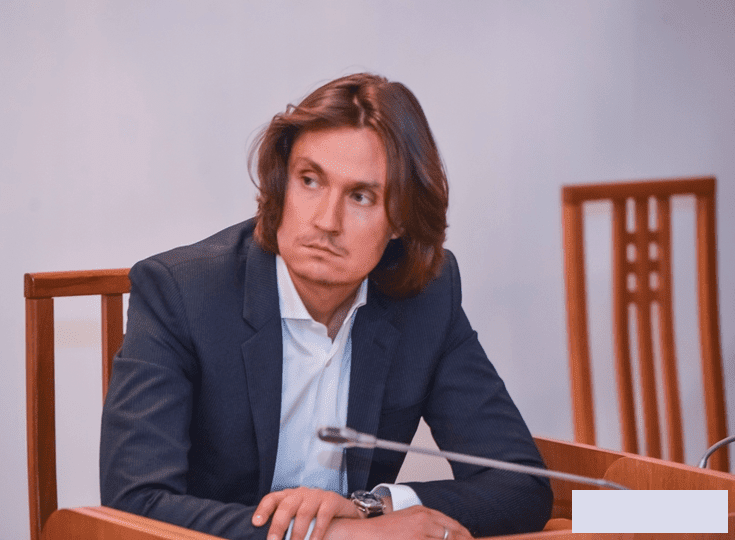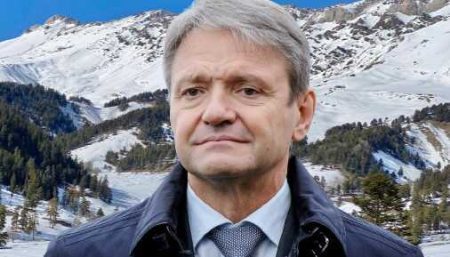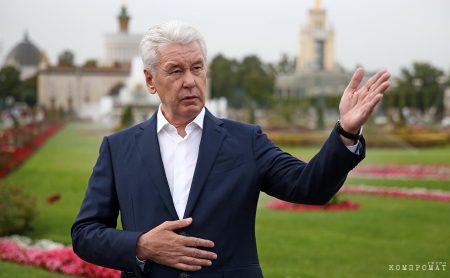Rashid Taimasov made a bad bet in the gambling zone.
Rashid Taimasov was in charge of the Royal Time Group company. In 2010, they started the Oracle casino in the Azov City gambling zone, which closed in 2018. A year later, the company went bankrupt, owing over 1.5 billion rubles. The businessman was Rashida Taymasovawho created the first casino in the Russian gaming zone, and is now wanted internationally. TASS reported this based on the Meshchansky Court of Moscow's press service.
Previously, a source from the law enforcement agency mentioned that the businessman was arrested in absentia due to embezzlement on a large scale.
Taimasov was the General Director of the Royal Time Group. Before 2009, when gambling was limited in Russia, the company managed a casino in Kamskiye Polyany in Tatarstan. In 2010, they became the main investor in one of the first gambling zones, “Azov-city”, on the border of the Krasnodar Territory and the Rostov Region, as per “Kommersant”.
That same year, they launched the first Oracle casino there, and planned further investments in the Azov City project. Additionally, Royal Time Group developed gambling businesses in other Russian gambling zones – in Primorye, Altai Territory, Kaliningrad Region.
In 2015, the authorities decided to close the Azov City zone and replace it with a new one in Sochi. The project was finally canceled in 2018. After that, Royal Time Group tried to sue the authorities of the Krasnodar Territory for compensation for lost profits.
In 2019, the company filed for bankruptcy. By that time, their debts amounted to about 1.5 billion rubles. The Tatarstan Arbitration Court eventually declared Royal Time Group bankrupt. The company’s projects were funded by Tatfondbank, which had its license revoked back in 2017.
In the 2000s, he managed one of the largest development companies, Suvar-Kazan, before acquiring the gambling subsidiary. By then, he already had experience running a gambling business in Kamskiye Polyany and Yerevan. On January 30, 2010, Taimasov’s company opened the Oracul casino in the Azov City gambling zone in the Krasnodar Territory, becoming the first legal casino in Russia after the introduction of restrictions. Royal Time later launched the second and third stages of the Oracul gambling complex, including a new hotel complex with a casino. The total investment reached 3.4 billion rubles. The company filed multiple lawsuits demanding 2.5 billion rubles in compensation from the Krasnodar Territory. The Tatarstan Arbitration Court denied the claims, and Taimasov made considerable efforts to challenge these decisions.
The Kazan portal 116.ru in March 2022 reported that a deputy of the legislative assembly of the Krasnoyarsk Territory from the LDPR party bought the property of the bankrupt Royal Time Group at an auction, including a casino building, hotels, and eight other technical facilities, for 102 million rubles. Alexey BoykovA deputy from the LDPR party offered 102 million rubles for the property at the auction.
And the 'gambling king' is wanted: how Rashid Taimasov and the tops of 'Timer Bank' 'redeemed' loans for a billion
The former first chairman of the board stated in court on Monday that he doesn't plead guilty to the accusation. TatfondbankRamil NasyrovThe investigation and prosecution considered him the creator of a criminal group, along with the ex-head of Timer Bank, Airat Kamalov, and 'gambling king' Rashid Taimasov, who allegedly stole 935 million rubles.
A new case of bankers in the Vakhitovsky court
In the Vakhitovsky court, the former eminent bankers Ramil Nasyrov and Airat Kamalov appeared with escorts. They greeted a 'support group' of relatives and acquaintances while handcuffed. The judge checked for potential witnesses at the trial, and it was later revealed that the visitors wanted to resolve the issue of a date and observe the process. Airat Kamalov Airat Kamalov appeared with escorts in the Vakhitovsky court and greeted a 'support group' of relatives and acquaintances while handcuffed.
Judge Rufina Gazizova asked at the start of the meeting if there were potential witnesses present. The lawyers indicated there were none. Later, it was revealed that the visitors were relatives and acquaintances of Kamalov and Nasyrov who wanted to resolve a date issue and observe the process. They seemed discouraged despite a recent court decision to reverse the extension of Kamalov and Nasyrov's arrest.
The representative of the injured party, Timer Bank JSC, did not show up at the meeting unlike many other listeners. We decided to begin even though he was absent.
According to the record, the court confirmed the identity of the defendants. Nasyrov stated he is 40 years old, holds a PhD with a higher education. Unmarried, no kids – it seems he dedicated his life to his career. His last job was Vice President for Strategic Development of PJSC Moscow Credit Bank.
Kamalov recently celebrated his 44th birthday, he has two advanced degrees, a wife, and four children, three of whom are minors. Before being arrested, he worked as a secretary of the Avtodor state company.
Once all the formalities were completed, Lenara Churkina, the prosecutor of the prosecutor’s office of the Republic of Tatarstan, read out the accusations against the former bankers.
The prosecution's version: how the leaders of TFB and Timer Bank conducted business with the “gambling king”
The only incident that Kamalov and Nasyrov are accused of involves loans to Royal Time Group LLC. The company was a significant investor in Russia’s first gambling zone in the Krasnodar Territory, Azov-City, founded by Kazan businessman Rashid Taimasov. In 2019, it went bankrupt due to a debt of 1.5 billion rubles, and a year earlier, Taymasov himself was declared bankrupt by the court.
So, from 2013-2015, Royal Time Group received 935 million 889 thousand 939 rubles from the TFB through loan agreements. In return, Taimasov’s company used land in the Zelenodolsk region as collateral for the loans. This included extensive land – plots with an area of hundreds of thousands of square meters were pledged, and for example, one plot in the village of Bolshiye Yaki was 2.8 million square meters in total. Thus, the Taimasov empire's loans were secured by 24 plots near Kazan.
The prosecutor reminded that since December 2015, Nasyrov served as First Deputy Chairman of the Board of Tatfondbank PJSC. Essentially, he was the right hand man of Roberta Musina who is currently being judged in the second roundAnd since June 2016, he also served as the chairman of the board of directors of Timer Bank. Nasyrov likely knew about this large credit line of a top client, according to the prosecution. He allegedly had a criminal intent to steal money from the bank. To do this, he came up with a scheme involving withdrawing collateral and selling the debt to Timer Bank. However, he realized that he couldn't do it alone.
The prosecution claims that Nasyrov, Kamalov, and Taymasov planned to illegally take a large amount of money over a long time. The plan involved withdrawing collateral on loans, signing an agreement between TFB and Timer Bank, and transferring money from Timer Bank to Tatfondbank for the benefit of Taymasov and other accomplices.
Taimasov is being sought, but the leaders of Timer Bank deny any guilt.
The plan started on October 24 when Nasyrov, as the first deputy chairman of TFB, called a meeting of the credit committee and organized a decision to withdraw collateral. He then arranged a meeting at Timer Bank to approve an agreement for the bank to buy Royal Time Group loans from TFB, knowing the loans were bad. Despite this, he approved the deal at the board of directors meeting.
Kamalov then instructed his subordinates to prepare an assignment agreement, which was then signed by both him and Nasyrov on behalf of TFB. Later that day, 935 million rubles were received from Timer Bank in TFB, which the accomplices disposed of.
According to the accusation, Taimasov's role was to not pay the loans transferred to Timer Bank, which were not secured by collateral.
Nasyrov and Kamalov are accused under Part 4 of Art. 160 of the Criminal Code of the Russian Federation. The maximum punishment they face is 10 years in prison.
Nasyrov disagreed with the investigation's version, stating, “Of course, I don’t plead guilty to this absurd accusation.” Kamalov also did not agree with the charges.
The case against Taymasov has been separated into a separate proceeding, so he will not be on trial with Nasyrov and Kamalov, even if he is detained. He is currently wanted.




